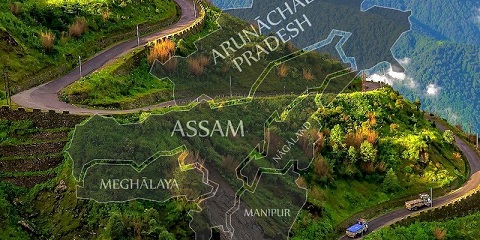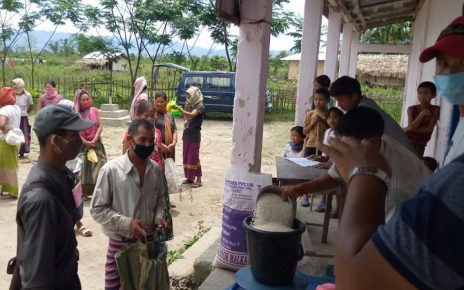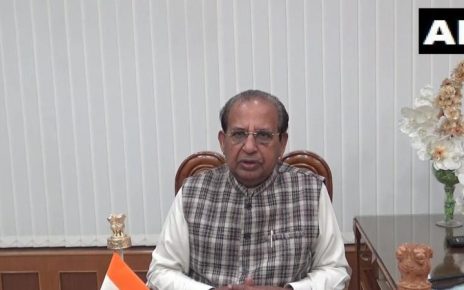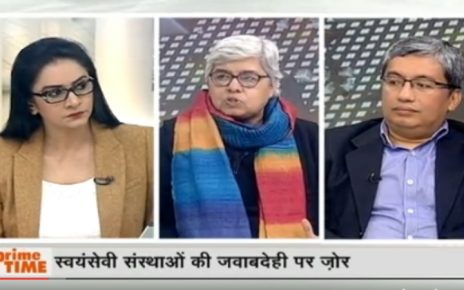Available at India News Diary
Published on 01 November 2019
GUWAHATI/NEW DELHI: The Government of India is expected to place revised Citizenship Amendment Bill (CAB) in the winter session of the parliament beginning on 18 November 2019 to address the crisis arising out of the National Register of Citizens (NRC) of Assam and its intention to carry out the NRC nation-wide to weed out alleged illegal immigrants.
Given the recent vociferous protests against the CAB in the North East, the Ministry of Home Affairs (MHA) and the ruling BJP have proposed to tweak the CAB to provide that the CAB will not override the Bengal Eastern Frontier Regulation (BEFR) of 1873 under which Indian nationals are required to take Inner Line Permit (ILP) for entry into Arunachal Pradesh, Nagaland and Mizoram and the CAB will not be applicable for these States. Further, the Manipur People’s Protection Bill, 2018 has been passed by the State Assembly to expel non-Manipuris i.e. persons who or whose forefathers were not living in Manipur before 1951.
“If the CAB is tweaked to exempt the ILP States of Arunachal Pradesh, Mizoram and Nagaland and the Manipur People’s Protection Bill 2018 is given assent, more than 10 lakh people from these States can be identified as illegal residents under the nation-wide NRC following adoption of the CAB and be dumped into Assam which shares the borders with all these States. Assam instead of expelling the alleged foreigners will end up receiving over a million people before 2024.” – stated Suhas Chakma, Director of the Rights & Risks Analysis Group.
“The BEFR was enacted in 1873 and all the ILP States were 100% tribal areas in 1873 and all the non-tribals who cannot establish their descent from 1873 are illegal residents unless they have been settled by the Union of India such as the settlements in Arunachal Pradesh following Indo-China war in 1962. As per the 2011 census, Mizoram had 61,091 non tribals, Nagaland had 2,67,529 non-tribals and Arunachal Pradesh had 4,31,906 non-tribals while Manipur has lakhs of people who might not have documents to prove their residence prior to 1951. All these people are expected to be dumped into Assam.” – further stated Mr Chakma.
“The tweaked CAB will be another instrument to target Indian citizen minorities in the ILP States. An overwhelming majority of the 35,000 Brus of Mizoram who have been living in the relief camps in Tripura since October 1997 are not being taken back because of the lack of documents from Mizoram while in 2017 Nagaland had withdrawn the Scheduled Tribe status from the Rongmeis, one of the Naga sub-tribes, on the ground that they are not indigenous to Nagaland.” – further stated Mr Chakma.
“The CAB will provide citizenship by naturalisation to “persons belonging to minority communities from Afghanistan, Bangladesh and Pakistan” but the Gorkhas, Scheduled Tribes, Bhojpuris, Koch Rajbongshis, Tea Tribes etc cannot claim to have come from Afghanistan, Bangladesh and Pakistan and therefore, they are not covered under the CAB. The Assam government and the MHA have no policy as to how to resolve their issues.” – also stated Mr Chakma.
Religious minorities who fled from Afghanistan, Bangladesh and Pakistan are only being fooled with the promise of the CAB. The CAB only reduces the time period for submitting citizenship applications from 11 years to six years but the situations of the Chakmas and Hajongs who were settled in Arunachal Pradesh by the government of India after the 1962 Indo-China war is instructive.
Despite the two Supreme Court judgments in 1996 and 2015 and the BJP government at the State level in Arunachal Pradesh and at the Central level, not a single citizenship application of the Chakma and Hajong migrants of 1964 has been finally determined as on date despite the processing of the citizenship applications of these people being under the monitoring of the Supreme Court since 2015. There is no guarantee that if the CAB is enacted, the citizenship applications of those excluded from the NRC will be processed by the Government of Assam or the Central Government.
Further, an overwhelming majority of those excluded from the NRC have submitted their claims under the NRC as citizens of India. If the CAB is enacted and the same people submit applications for citizenship under the CAB claiming themselves as belonging to minority communities from Bangladesh/East Pakistan, it effectively means they had submitted false statements and evidence with the NRC authorities and remain open for prosecution for various criminal offences of false statement, forgery etc.
“There is a need for a holistic, one time solution for all the excluded people but the BJP government is shying away from taking such a bold decision as it seeks to divide people and the North East along ILP lines. Any State or Union Territory which is under the jurisdiction of Union of India has to share equal burden including on refugees. If North East is divided into ILP and non-ILP States, the region will witness balkanisation and people, especially minorities will suffer more.” – warned Chakma.



